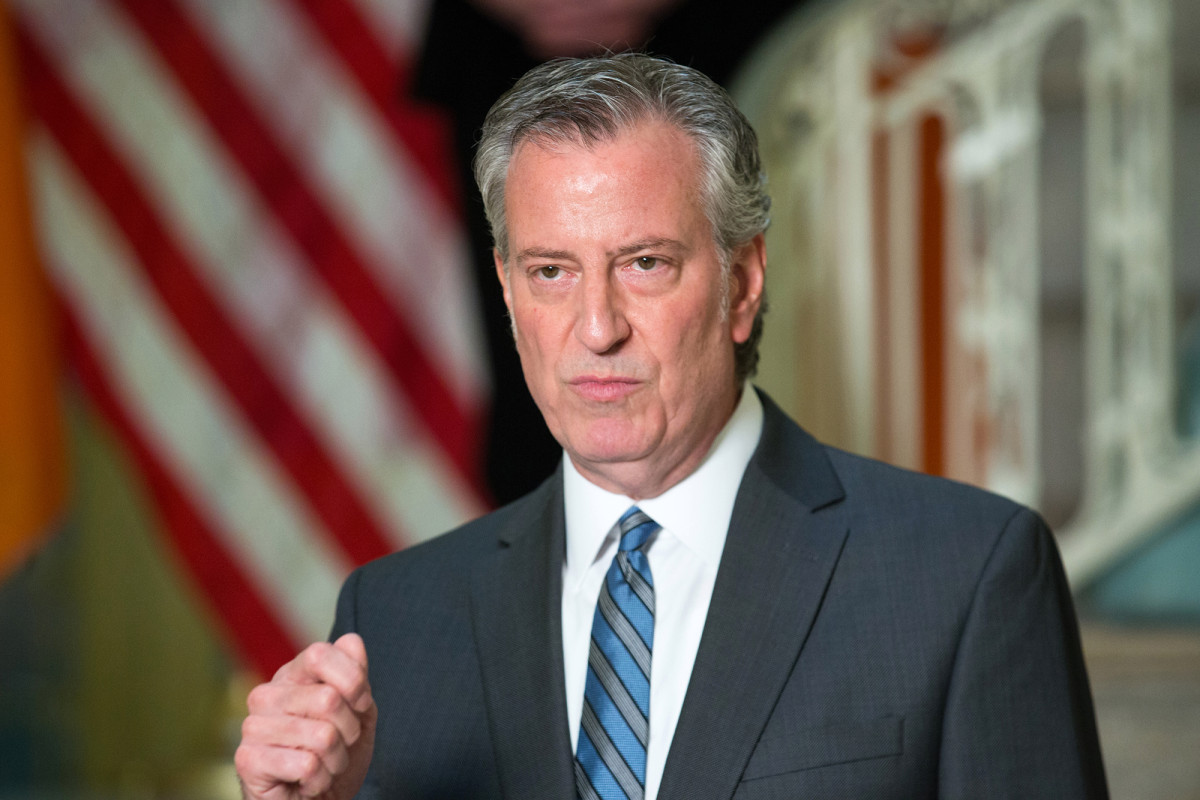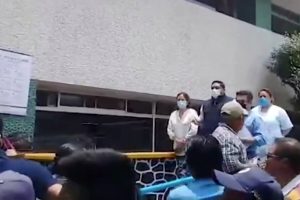Mayor Bill de Blasio said Wednesday that the city’s latest coronavirus indicators show that the Big Apple has “got some more work to do” in the fight against the bug as suspected COVID-19 hospitalizations and those in intensive care units ticked up.
“Not every day goes the way we plan it,” de Blasio said during his daily press briefing. “The big trend is good, but day to day we still see fluctuations that are sobering and it’s a reminder — do not take our foot off the gas. Do not relax our rules until it’s time.”
The mayor added, “Today we see some numbers that remind us we still have some work to do.”
Patients in ICUs for suspected coronavirus across the city’s 11 public hospitals increased slightly from 596 on Sunday to 599 on Monday, while the number of people admitted to Big Apple hospitals also went up from 75 on Sunday to 109 on Monday, according to the latest city data.
“We’ve got to get that number down. That’s another key piece of puzzle,” de Blasio said in reference to the numbers of patients in ICUs.
De Blasio also said the city “obviously” also needs to see the number of hospitalizations trend downward.
The percentage of people tested citywide who are positive for COVID-19, however, plunged from 22 percent Sunday to 15 percent on Monday, the data shows.
Commenting on the overall statistics, the mayor said, “So, more fight ahead.”
“We want to get all these numbers going down together,” he said. “I’m convinced we will, but we’ve got some more work to do.”
Meanwhile, Hizzoner announced the creation of a series of 10 “sector advisory councils” for different aspects of the city to help the Big Apple restart its economy and bounce back from the coronavirus crisis.
“There’s no on-off switch here. This has to be done gradually. This has to be done in stages,” de Blasio said regarding the reopening of the city.
The councils for “small business,” “large business,” “labor and workforce development,” “arts, culture and tourism,” “faith-based organizations,” “construction and real estate,” “nonprofits and social services,” public health and healthcare,” education and vocational training,” and “surface transportation” will “help us understand what is needed to help us get this restart right,” said de Blasio.
Some of the councils, de Blasio said, will start meeting as early as Thursday, while the rest will meet over the next few days.
Each of them will be led by a deputy mayor or agency head and will be made up of between 20 and 40 members, according to the mayor.
“Their views, their questions, their input are going to be used immediately in our restart planning,” said de Blasio.



















